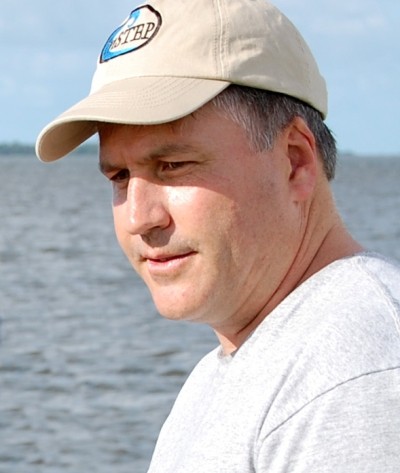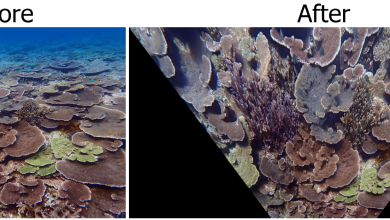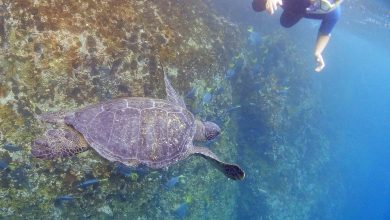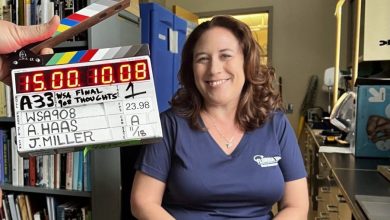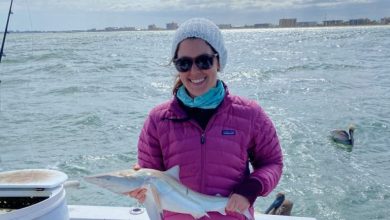Florida Tech Partners in New Ocean Education Center
MELBOURNE, FLA.—Environmental crises like the Gulf oil spill make scientists and citizens more aware of the importance of clean and flourishing marine ecosystems.Florida Institute of Technology is among those taking the lead in a major step toward public understanding of the ocean with the new Center for Ocean Science Education Excellence (COSEE). Based at Indian River State College (IRSC) in Fort Pierce, the center is a collaboration of IRSC, Florida Tech, the Smithsonian Marine Station and the Ocean Research and Conservation Association (ORCA).
Richard Tankersley, Florida Tech professor of biological sciences, is the principal investigator for the university’s work in this $2.8 million National Science Foundation-funded project. He said, “The project will provide training for graduate students, post-docs and research scientists on how to communicate more effectively to non-scientific audiences about their science.”
Also involved, the University of Florida Sea Grant Extension Program will lead community outreach across the state. Faculty at Harbor Branch Oceanographic Institute/Florida Atlantic University will provide scientific expertise and mentoring on the Treasure Coast.
“COSEE Florida will help students, educators and people of all ages develop a better understanding of how ocean and coastal systems work,” said Edwin R. Massey, IRSC president and a principal investigator on the grant.
COSEE Florida will take a three-pronged approach:
• Offering workshops across the state to engage ocean scientists and help them effectively communicate their discoveries and the relevance of their ground-breaking research to non-scientific audiences
• Designing and disseminating a new ocean-based curriculum for college students planning to teach middle school science
• Creating an eight-region Florida Ocean Science Learning Network offering public programs that focus on regional and statewide challenges such as pollution in the Indian River Lagoon or the impact of ocean processes on dolphins, turtles and other animals
At IRSC, education majors will develop a deeper understanding of the ocean system, biodiversity and methods used to foster critical thinking among their students. Ocean science content will be added to the IRSC bachelor’s degree program in middle school science, and, starting in May 2011, IRSC education students will intern with research scientists on the Treasure Coast.
“Through their collaboration with ocean scientists, these future teachers will gain a better appreciation for the scientific process and will learn how to translate their experience and new knowledge into classroom activities,” said Tankersley.
Valerie Paul, director and chief scientist, Smithsonian Marine Station, and Edith Widder, CEO/president/senior scientist for ORCA, will also serve as principal investigators for their organizations.
Reaching out to the public, COSEE Florida will bring scientists, educators and people of all ages together under the theme Water as Habitat. Ocean-based presentations and workshops will generate interest in the marine ecosystem, stimulate community discussion and increase awareness of the value of scientific knowledge in environmental decision making.
“Scientists are accustomed to communicating to other scientists, but they are not particularly good at translating and explaining their research findings to non-scientists, said Tankersley.“COSEE Florida will attempt to close this communication gap by sponsoring intensive professional development workshops for local ocean scientists, including Florida Tech graduate students, aimed at helping them tailor their presentations of research findings and discoveries to a range of audiences.”
COSEE Florida, based at the IRSC Science Center at the main campus in Fort Pierce, will join the national network of 12 centers and a central coordinating office funded by the National Science Foundation’s Division of Ocean Sciences.

